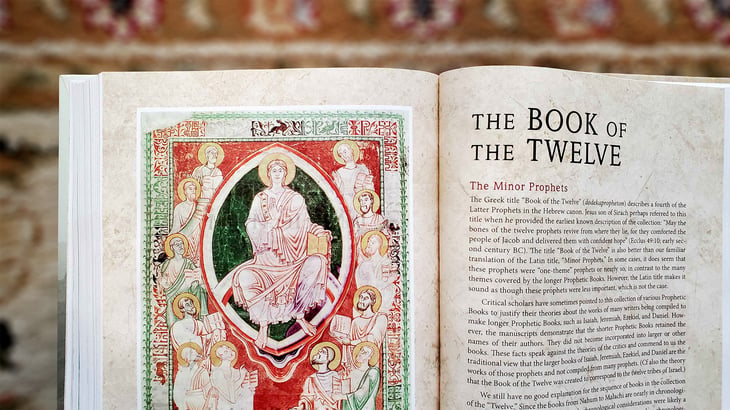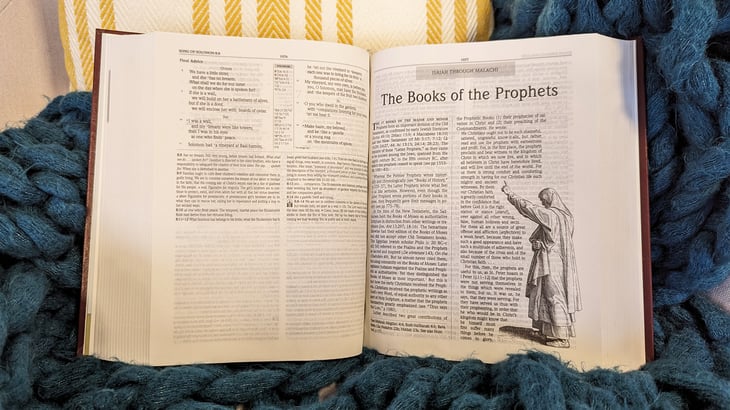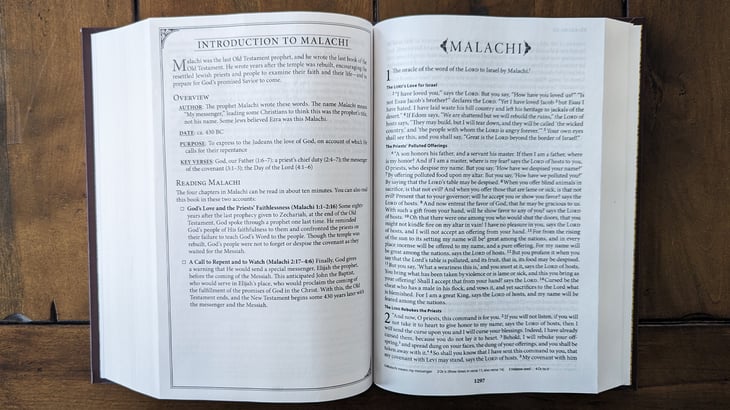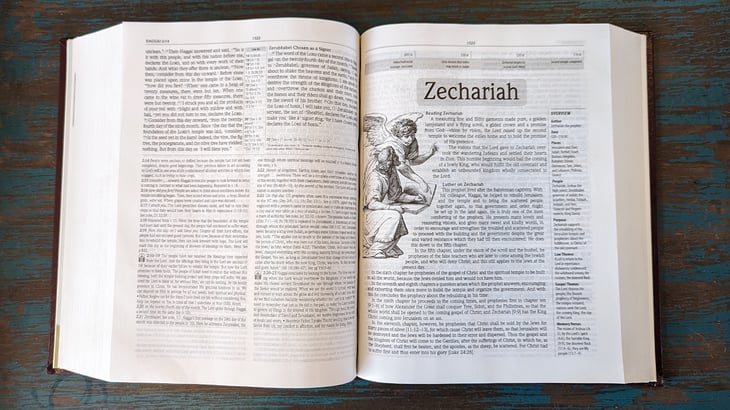Digging Deeper into Scripture: John 20:19–31
When we use the expression “take my word for it,” we are asking another person or group to trust that what we are saying is true. More specifically, we are asking this person or group to trust us. The strength of the relationship is as central as the truth being shared. Consider how many things we take on the word of another. Grandparents share events which took place in family history decades before we were born. Historians teach of wars that shaped the course of human history as if they had been there themselves. Friends and family tell us of places to which we have never been. Although we have never experienced these events and places firsthand, we believe the words of those we trust. The same can be seen in God’s Word.
The Minor Prophets: An Overview
The Greek title “Book of the Twelve” (dodekapropheton) describes [the last twelve] of the Latter Prophets in the Hebrew canon. Jesus son of Sirach perhaps referred to this title when he provided the earliest known description of the collection: “May the bones of the twelve prophets revive from where they lie, for they comforted the people of Jacob and delivered them with confident hope” (Ecclesiasticus [a book of the Apocrypha] 49:10; early second century BC). The title “Book of the Twelve” is also better than our familiar translation of the Latin title, “Minor Prophets.” In some cases, it does seem that these prophets were “one-theme” prophets or nearly so, in contrast to the many themes covered by the longer Prophetic Books. However, the Latin title makes it sound as though these prophets were less important, which is not the case.
Digging Deeper into Scripture: Mark 10:35–45
I grew up reading comic books (often when I should have been studying). I was fascinated by the heroes, stories, art, and action. Back then, you could buy comic books at the grocery store. I remember many times standing at the comic-book rack—reading the Hulk, Captain America, the X-Men, the Avengers—and having a store employee offer the terse remark, “This isn’t a library.”
More than any other hero, I loved Spider-Man. I think it was the costume and his set of powers. If you are familiar with the hero, then you know that his real name is Peter Parker, and he was raised by his aunt and uncle, Ben and May Parker. In the story, Uncle Ben offers his nephew an important piece of wisdom that sticks with Peter throughout his life: “With great power comes great responsibility.”
The Gospel of Matthew: An Overview
The first book of the New Testament begins in a manner similar to the first book of the Old Testament: focused on genealogy (cf Matthew 1:1–17; Genesis 5). Matthew sketches for us a human landscape from Abraham, the patriarch of Israel, to Jesus, the Savior of Israel and of the nations. Matthew is keen to tell both the glorious elements of the story as well as the tragic ones. Throughout the book, Matthew emphasizes how Jesus taught and fulfilled the Word of the Lord for the sake of the people.
This blog post is adapted from Lutheran Bible Companion Volume 2: Intertestamental Era, New Testament,and Bible Dictionary.
Digging Deeper into Scripture: Genesis 22:1–18
The United States enjoys what is largely a free-market economy. Those entering and competing in the free-market economy vie for the attention of the consumer and do so, in part, with slogans or catchphrases designed to capture the attention. We hear or see examples of these slogans constantly on the radio, TV, and even in print magazines. One slogan that comes to mind is from Porsche. Summarized, the idea behind the slogan for Porsche is that this brand of car is so wonderful that there can be no substitute. If you want to drive a nice vehicle, it must be a Porsche.
Malachi: An Overview
God speaks through Malachi to rebuke His people for their unrighteousness, specifically the priests for their failure to fulfill their duties and to those marrying foreign idolatrous spouses. The Lord makes clear the Day of Judgment is coming and he wants His people to be prepared. The following is adapted from the Lutheran Bible Companion.
Digging Deeper into Scripture: Ephesians 5:22–33
When working with couples in premarital counseling, we study a range of topics germane to wedding and marriage, such as finances, children, in-laws, chores in the home, expectations, and the like. Our first session appropriately addresses related spiritual topics. The three I normally stress are God’s design for marriage, raising children in a Christian home, and roles within marriage. When discussing roles within marriage, the couple and I explore Ephesians 5:22–33.
Zechariah: An Overview
When Zechariah was prophesying, the people of Judah were standing amidst the destruction of their once glorious city. With no city and no temple, the people of Judah had no hope; they feared that God had left them. God worked through Zechariah to restore faith in His people. The following has been adapted from Lutheran Bible Companion.
Digging Deeper into Scripture: Psalm 126
In this psalm, after the Israelites had been exiled in Babylon for seventy years, we see God’s restoration of His people—not merely restoration from exile but foreshadowing our spiritual restoration in Jesus’ death and resurrection, as well as the total restoration to come at Christ’s return.




















